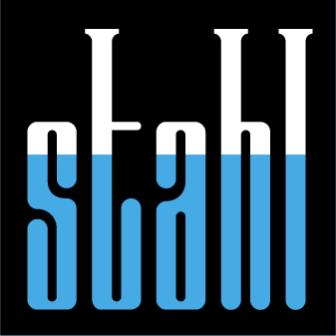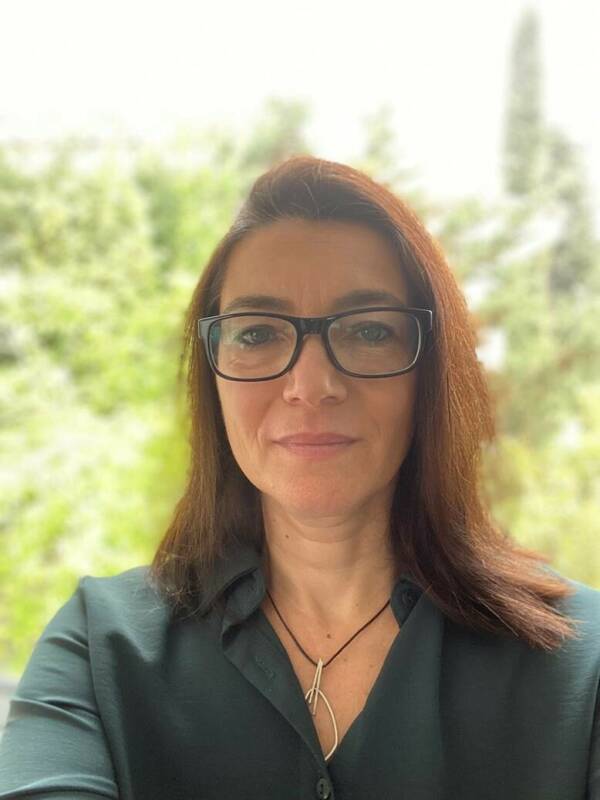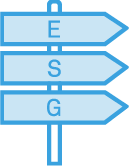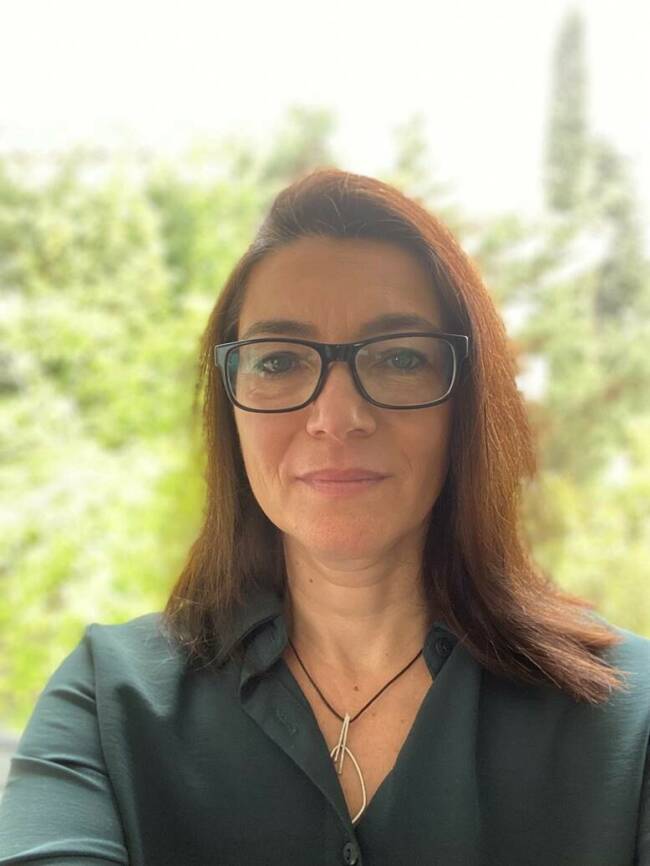

Back to overview

Scroll
down

Our commitment is to foster ethical behavior via the example of our leadership and by providing training, and robust compliance programs. Explore this section to learn about Stahl’s governance and leadership, how we deal with ethics and compliance.
Transforming Stahl’s leadership for a sustainable future
Stahl Group has a matrix organization with a strong local presence and a regional set up and a centralized management located in the operational headquarters of Stahl Group, Stahl Holdings BV in the Netherlands. Stahl Group S.A. is the shareholder of Stahl Parent BV and Stahl Parent BV is the direct shareholder of Stahl Holdings BV as per the end of 2021.
Maarten Heijbroek was appointed as Stahl’s CEO and member of the Board on 1 July, 2021. He succeeded Huub van Beijeren, who retired after 13 years at the helm. Huub’s contribution to the growth and success of Stahl over the years cannot be overstated, and it was justly recognized and celebrated upon his departure. Huub continues to serve the company as a Stahl Board member.
The governance structure is as follows:
- Chief Executive Officer (CEO),
- Chief Financial Officer (CFO),
- Chief Operating Officer (COO),
- Chief Innovation Officer (CINO) including ESG,
- Group Director for Leather,
- Group Director Performance Coatings & Polymers,
- Group Director R&D and Technical Application,
- Group Director Human Resources.
- Two executive members: the CEO and CFO of the Stahl Group,
- One former executive member (Huub van Beijeren),
- Six non-executive members - representatives of the Wendel Group and BASF Group (shareholders of the Stahl Group),
- Two independent non-executive members.
- Regional management: the Stahl Group has four regional directors: Greater China & East Asia Pacific, India/Bangladesh, North America and Latin America. Europe and Africa are managed from the operational headquarters in the Netherlands.
- The Executive Control Group represents key senior functions of the Stahl Group, including the strategic business units, regional general managers and group support services (e.g. Finance, ESG, HR, marketing, communication, Tax, Legal, IT, Internal Audit & Risk). The Executive Control Group meets quarterly to discuss performance and strategy.
- Capex Committee, which is responsible for the review and authorization of capital expenditure requests.
- Stahl has a full-time internal auditor since 2020, directly reporting to the Audit Committee.
In 2021, Stahl agreed to apply gender balance targets for the leadership of the company. One woman joined the Stahl Board in 2021 - an increase in female representation from 11% in 2020 to 18%.
Stahl Parent BV has an Audit Committee and a Nomination/Remuneration Committee. The Internal Auditor of Stahl reports to the Audit Committee. The Audit Committee meets four times per year and discusses topics relating to internal and external reporting and corporate governance.
Stahl’s former Management Team is now known as the Stahl Leadership Team. HR director, Michele Taraschi joined the Leadership Team in 2021. ESG is represented by the Chief Innovation Officer (CINO), John Fletcher.
The Stahl Leadership Team is responsible for the day-to-day business management:
The board of Stahl Parent BV is a one-tier board and responsible for the general affairs and strategy of Stahl Parent BV and its direct or indirect subsidiaries. The board is responsible for the formation and implementation of the corporate governance organization of the Stahl Group, including its management and reporting structure in accordance with the articles of associations of the relevant group companies and is responsible for ensuring compliance with such rules. In 2021, the board held 6 meetings and consisted of:
Michael Costello
Group Director ESG
“Stahl takes an active role in organizations that are driving positive impact throughout the industry, like the ZDHC foundation, which is eliminating unwanted substances from the fashion industry, and the Renewable Carbon Initiative, which is replacing fossil carbon in the chemical industry. Stahl is an active board member of both of these governance bodies and sat on the Executive Committee of the Leather Working Group, which ensures environmental stewardship for tanneries, from 2017 to 2021.”

ESG governance
- Group Director ESG
- ESG Performance Manager
- Environmental Impact Manager
- Supply Chain Transparency Manager
- Life Cycle Assessment Manager
- 4 Regional Stahl Campus® managers (Europe, Americas, India, China)
The ESG team formally meets every two weeks with the CINO and continuously engages with finance, legal counsel, sales teams, product managers, researchers, product stewardship and operations staff to monitor the implementation of its strategy and to discuss progress on new initiatives related to ESG performance. The ESG team meets on a quarterly basis with the Wendel ESG team, to review progress on the ESG Roadmap targets.
The ESG team supports commercial activities initiated by customers related to sustainable development (e.g.: chemical compliance, innovation on renewable resources and environmental impact assessment) via conferences, webinars and Stahl Campus® training courses.
KPIs (key performance indicators) related to safety, health & environment are measured and reported monthly by regional operations staff at Stahl manufacturing sites around the world. Environmental KPIs (CO2 emissions, energy, water and waste) are consolidated by the ESG team into a report which is issued each quarter.
In 2021, a new member was added to the ESG team to manage supply chain transparency and chain of custody for our biomass based products. In early 2022, a new position was added to support the increased demand for Life Cycle Assessment data on our products.
The 2021 ESG team:
Ethics & Compliance
Stahl’s strategic direction – and therefore policy – is influenced by and aligned with the UN Sustainable Development Goals, the UN Global Compact Principles and the OECD Guidelines for Multinational Enterprises. We have policies in place covering human rights, labor, environment and anti-corruption to ensure we mitigate any risks that arise.
All business partners must abide by all applicable anti-corruption laws and regulations of the countries in which they operate.
Stahl’s Code of Conduct for Business Partners
Stahl’s Whistleblower policy allows employees to report suspicious behavior, while offering the necessary guaranteed protection.
Whistleblower policy
We aim to have LCA data for 300 products by 2050. With 50 available in 2021, we are on track to meet the target.
Assessing the impact of our products
Our policies
Outlines what is expected of every person who works for Stahl.
Code of Conduct for Employees
A list of all our policies is available on our website.
Employee engagement is critical for compliant and ethical operations. Our 2030 goal is for 100% of Stahl employees to be trained in the eradication of corruption and bribery in all its forms. In 2021, 95.9% of employees received anti-bribery and corruption training, and 97.5% were trained on corporate policies. Mandatory training on these topics applies to all employees.
There were seven cases of whistleblowing in 2021. All cases were investigated and closed.
Data verified and validated by Deloitte
Ethics & compliance training

Adhering to the French SAPIN II Law on corruption
- Code of conduct – all employees must sign this
- Alert mechanism – Stahl’s whistleblowing policy
- Annual corruption risk mapping
- Third party due diligence procedures – taking a risk-based approach
- Internal and external accounting control procedures – including anti-corruption
- Training program – all Stahl employees follow annual anti-corruption e-learning training
- Disciplinary procedure for non-compliant employees
- Internal monitoring and assessment system
This law imposes an obligation on certain companies to implement measures to prevent and detect corruption and influence peddling offences, either committed in France or abroad. Stahl is subject to this law and we have a compliance program to comply with the requested measures. Stahl applies a zero-tolerance policy with respect to corruption.
Key measures:
Industry governance
As one of the founding companies of the Renewable Carbon Initiative (RCI), Stahl continues to support and accelerate the transition to more renewable feedstock across the industry. In 2021, Stahl was involved in several working group activities, such as labelling Renewable Carbon content, and Life Cycle Assessment. We provided input on policy papers RCI published directed at the EU. The RCI expanded this year, welcoming new members.

We also deepened our connection with ZDHC: Stahl’s ESG Director Michael Costello was elected to the ZDHC board of directors in 2021, one of two chemical industry representatives on the board of this influential brand-driven initiative which is eliminating unwanted substances from the fashion and footwear supply chain.
Stahl is an active member of the Leather Working Group (LWG), and served on the LWG Executive Committee as a board member from 2017-2021.
Supplier assessment: EcoVadis
Stahl was awarded the EcoVadis Gold rating in 2021. Here Ingrid Weijer, ESG Manager, and Ariadna Galve, Supplier Development and Performance Manager, talk about Stahl’s approach to working with suppliers, and what the EcoVadis rating means.

Ariadna Galve
Supplier Development and Performance Manager

Ingrid Weijer
ESG Manager
How does Stahl work with suppliers?
Ariadna: Our sustainable procurement vision is to add value to our customers by delivering innovative solutions, and to do that, we build sustainable partnerships with our suppliers around the world. We respect our suppliers’ corporate culture and their employees, and we consolidate our relationships with them based on mutual trust.
Why do you use EcoVadis?
Ingrid: We have a responsibility when it comes to suppliers’ environmental and social issues, including human rights. The EcoVadis system gives us insight into the sustainability performance of our suppliers, so we can support them where needed and monitor Stahl’s impact throughout the value chain.
How does EcoVadis work?
Ariadna: EcoVadis provides an assessment of our suppliers’ performance on four main themes: environment, human and labor rights, business ethics, and responsible sourcing. The evaluations are based on policies, actions, results and evidence, and their performance is expressed in scorecards. The scores result in a rating of bronze, silver, gold or platinum.
How are Stahl’s suppliers progressing?
Ingrid: Eighty percent of our direct suppliers (based on spend) were rated in 2021, and we’re proud to say Stahl was awarded EcoVadis Gold, with a score of 70 (out of 100). This places us in the top five percent of all companies assessed.
Ariadna: It’s a great achievement and it reflects the value our suppliers place in working together with Stahl towards a more transparent and sustainable supply chain. In the ESG roadmap, we set targets for our suppliers.

ESG roadmap to 2030
2023: Top 10 suppliers: minimum rating of 60/100 in EcoVadis (based on spend/€)
2030: All rated suppliers in EcoVadis: minimum rating of 47/100 (based on spend/€)

Back
to top

Back to overview

Back
to top

ESG roadmap to 2030
2023: Top 10 suppliers: minimum rating of 60/100 in EcoVadis (based on spend/€)
2030: All rated suppliers in EcoVadis: minimum rating of 47/100 (based on spend/€)
How are Stahl’s suppliers progressing?
Ingrid: Eighty percent of our direct suppliers (based on spend) were rated in 2021, and we’re proud to say Stahl was awarded EcoVadis Gold, with a score of 70 (out of 100). This places us in the top five percent of all companies assessed.
Ariadna: It’s a great achievement and it reflects the value our suppliers place in working together with Stahl towards a more transparent and sustainable supply chain. In the ESG roadmap, we set targets for our suppliers.
How does EcoVadis work?
Ariadna: EcoVadis provides an assessment of our suppliers’ performance on four main themes: environment, human and labor rights, business ethics, and responsible sourcing. The evaluations are based on policies, actions, results and evidence, and their performance is expressed in scorecards. The scores result in a rating of bronze, silver, gold or platinum.
Why do you use EcoVadis?
Ingrid: We have a responsibility when it comes to suppliers’ environmental and social issues, including human rights. The EcoVadis system gives us insight into the sustainability performance of our suppliers, so we can support them where needed and monitor Stahl’s impact throughout the value chain.
How does Stahl work with suppliers?
Ariadna: Our sustainable procurement vision is to add value to our customers by delivering innovative solutions, and to do that, we build sustainable partnerships with our suppliers around the world. We respect our suppliers’ corporate culture and their employees, and we consolidate our relationships with them based on mutual trust.

Ariadna Galve
Supplier Development and Performance Manager

Ingrid Weijer
ESG Manager
Supplier assessment: EcoVadis
Stahl was awarded the EcoVadis Gold rating in 2021. Here Ingrid Weijer, ESG Manager, and Ariadna Galve, Supplier Development and Performance Manager, talk about Stahl’s approach to working with suppliers, and what the EcoVadis rating means.
We also deepened our connection with ZDHC: Stahl’s ESG Director Michael Costello was elected to the ZDHC board of directors in 2021, one of two chemical industry representatives on the board of this influential brand-driven initiative which is eliminating unwanted substances from the fashion and footwear supply chain.
Stahl is an active member of the Leather Working Group (LWG), and served on the LWG Executive Committee as a board member from 2017-2021.

Industry governance
As one of the founding companies of the Renewable Carbon Initiative (RCI), Stahl continues to support and accelerate the transition to more renewable feedstock across the industry. In 2021, Stahl was involved in several working group activities, such as labelling Renewable Carbon content, and Life Cycle Assessment. We provided input on policy papers RCI published directed at the EU. The RCI expanded this year, welcoming new members.
Adhering to the French SAPIN II Law on corruption
- Code of conduct – all employees must sign this
- Alert mechanism – Stahl’s whistleblowing policy
- Annual corruption risk mapping
- Third party due diligence procedures – taking a risk-based approach
- Internal and external accounting control procedures – including anti-corruption
- Training program – all Stahl employees follow annual anti-corruption e-learning training
- Disciplinary procedure for non-compliant employees
- Internal monitoring and assessment system
This law imposes an obligation on certain companies to implement measures to prevent and detect corruption and influence peddling offences, either committed in France or abroad. Stahl is subject to this law and we have a compliance program to comply with the requested measures. Stahl applies a zero-tolerance policy with respect to corruption.
Key measures:
A list of all our policies is available on our website.
Employee engagement is critical for compliant and ethical operations. Our 2030 goal is for 100% of Stahl employees to be trained in the eradication of corruption and bribery in all its forms. In 2021, 95.9% of employees received anti-bribery and corruption training, and 97.5% were trained on corporate policies. Mandatory training on these topics applies to all employees.
There were seven cases of whistleblowing in 2021. All cases were investigated and closed.
Please swipe for full visual

Data verified and validated by Deloitte
Ethics & compliance training
All business partners must abide by all applicable anti-corruption laws and regulations of the countries in which they operate.
Stahl’s Code of Conduct for Business Partners
Stahl’s Whistleblower policy allows employees to report suspicious behavior, while offering the necessary guaranteed protection.
Whistleblower policy
We aim to have LCA data for 300 products by 2050. With 50 available in 2021, we are on track to meet the target.
Assessing the impact of our products
Our policies
Outlines what is expected of every person who works for Stahl.
Code of Conduct for Employees
Ethics & Compliance
Stahl’s strategic direction – and therefore policy – is influenced by and aligned with the UN Sustainable Development Goals, the UN Global Compact Principles and the OECD Guidelines for Multinational Enterprises. We have policies in place covering human rights, labor, environment and anti-corruption to ensure we mitigate any risks that arise.
ESG governance
- Group Director ESG
- ESG Performance Manager
- Environmental Impact Manager
- Supply Chain Transparency Manager
- Life Cycle Assessment Manager
- 4 Regional Stahl Campus® managers (Europe, Americas, India, China)
The ESG team formally meets every two weeks with the CINO and continuously engages with finance, legal counsel, sales teams, product managers, researchers, product stewardship and operations staff to monitor the implementation of its strategy and to discuss progress on new initiatives related to ESG performance. The ESG team meets on a quarterly basis with the Wendel ESG team, to review progress on the ESG Roadmap targets.
The ESG team supports commercial activities initiated by customers related to sustainable development (e.g.: chemical compliance, innovation on renewable resources and environmental impact assessment) via conferences, webinars and Stahl Campus® training courses.
KPIs (key performance indicators) related to safety, health & environment are measured and reported monthly by regional operations staff at Stahl manufacturing sites around the world. Environmental KPIs (CO2 emissions, energy, water and waste) are consolidated by the ESG team into a report which is issued each quarter.
In 2021, a new member was added to the ESG team to manage supply chain transparency and chain of custody for our biomass based products. In early 2022, a new position was added to support the increased demand for Life Cycle Assessment data on our products.
The 2021 ESG team:
Michael Costello
Group Director ESG
“Stahl takes an active role in organizations that are driving positive impact throughout the industry, like the ZDHC foundation, which is eliminating unwanted substances from the fashion industry, and the Renewable Carbon Initiative, which is replacing fossil carbon in the chemical industry. Stahl is an active board member of both of these governance bodies and sat on the Executive Committee of the Leather Working Group, which ensures environmental stewardship for tanneries, from 2017 to 2021.”

- Chief Executive Officer (CEO),
- Chief Financial Officer (CFO),
- Chief Operating Officer (COO),
- Chief Innovation Officer (CINO) including ESG,
- Group Director for Leather,
- Group Director Performance Coatings & Polymers,
- Group Director R&D and Technical Application,
- Group Director Human Resources.
- Two executive members: the CEO and CFO of the Stahl Group,
- One former executive member (Huub van Beijeren),
- Six non-executive members - representatives of the Wendel Group and BASF Group (shareholders of the Stahl Group),
- Two independent non-executive members.
- Regional management: the Stahl Group has four regional directors: Greater China & East Asia Pacific, India/Bangladesh, North America and Latin America. Europe and Africa are managed from the operational headquarters in the Netherlands.
- The Executive Control Group represents key senior functions of the Stahl Group, including the strategic business units, regional general managers and group support services (e.g. Finance, ESG, HR, marketing, communication, Tax, Legal, IT, Internal Audit & Risk). The Executive Control Group meets quarterly to discuss performance and strategy.
- Capex Committee, which is responsible for the review and authorization of capital expenditure requests.
- Stahl has a full-time internal auditor since 2020, directly reporting to the Audit Committee.
In 2021, Stahl agreed to apply gender balance targets for the leadership of the company. One woman joined the Stahl Board in 2021 - an increase in female representation from 11% in 2020 to 18%.
Stahl Parent BV has an Audit Committee and a Nomination/Remuneration Committee. The Internal Auditor of Stahl reports to the Audit Committee. The Audit Committee meets four times per year and discusses topics relating to internal and external reporting and corporate governance.
Stahl’s former Management Team is now known as the Stahl Leadership Team. HR director, Michele Taraschi joined the Leadership Team in 2021. ESG is represented by the Chief Innovation Officer (CINO), John Fletcher.
The Stahl Leadership Team is responsible for the day-to-day business management:
The board of Stahl Parent BV is a one-tier board and responsible for the general affairs and strategy of Stahl Parent BV and its direct or indirect subsidiaries. The board is responsible for the formation and implementation of the corporate governance organization of the Stahl Group, including its management and reporting structure in accordance with the articles of associations of the relevant group companies and is responsible for ensuring compliance with such rules. In 2021, the board held 6 meetings and consisted of:
Transforming Stahl’s leadership for a sustainable future
Stahl Group has a matrix organization with a strong local presence and a regional set up and a centralized management located in the operational headquarters of Stahl Group, Stahl Holdings BV in the Netherlands. Stahl Group S.A. is the shareholder of Stahl Parent BV and Stahl Parent BV is the direct shareholder of Stahl Holdings BV as per the end of 2021.
Maarten Heijbroek was appointed as Stahl’s CEO and member of the Board on 1 July, 2021. He succeeded Huub van Beijeren, who retired after 13 years at the helm. Huub’s contribution to the growth and success of Stahl over the years cannot be overstated, and it was justly recognized and celebrated upon his departure. Huub continues to serve the company as a Stahl Board member.
The governance structure is as follows:
Our commitment is to foster ethical behavior via the example of our leadership and by providing training, and robust compliance programs. Explore this section to learn about Stahl’s governance and leadership, how we deal with ethics and compliance.


